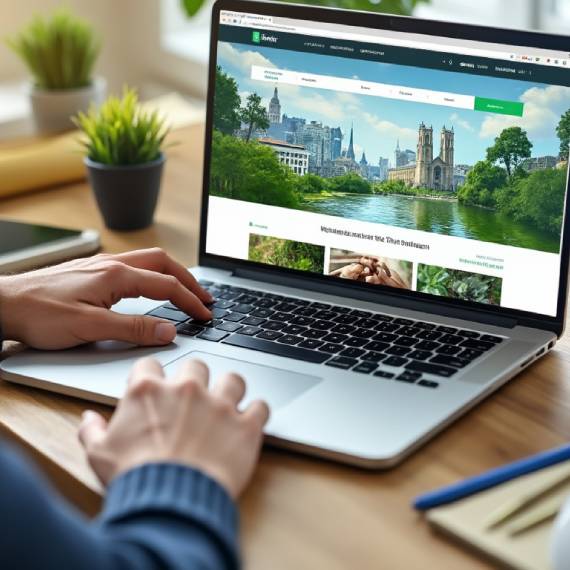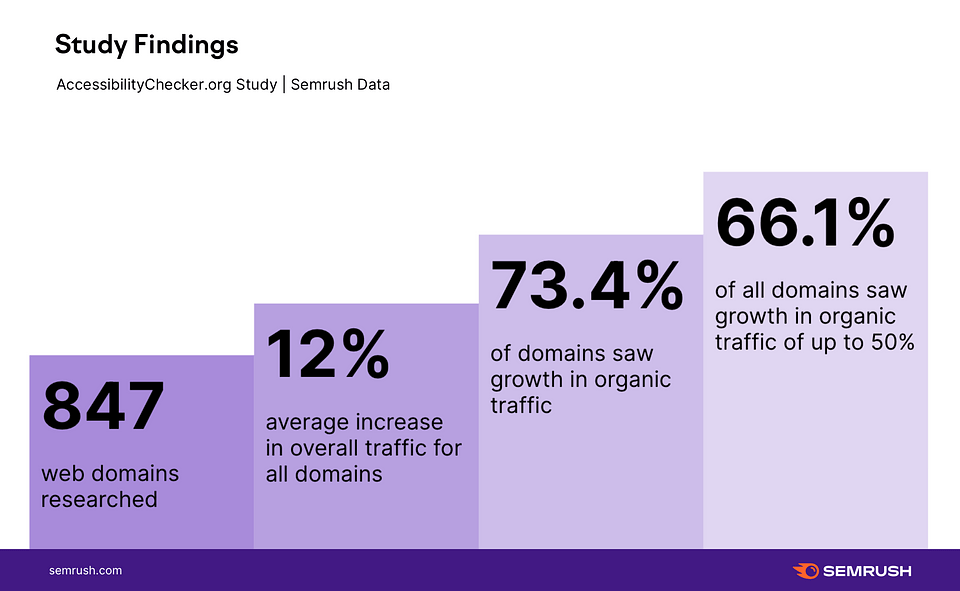Last Updated on September 9, 2025
What do we mean by a “sustainable and accessible SEO-friendly website”?

You want a website to last, and you want everybody to be able to find it easily, so build it right and in plain sight; then you won’t have to touch it again.
Check out the entire article on the SDM podcast!
Related Topic: Using AI to Build an Accessible … anything!
Obvious design solutions are often the most effective, as they align with users’ existing mental models and expectations.
This approach reduces users’ learning curve and cognitive load, making products more accessible and user-friendly. Read more: lukew.com
Sustainability, Accessibility, and AI – like organic and climate-friendly – are terms we see on everything from cookie packages to shoes to buildings. But I’m not using these terms for clickbait.
Sustainability, Accessibility, and Artificial Intelligence are important elements of SEO. More so than keywords or backlinks or even those domain authority scores you see when people are trying to push those backlinks.
Accessibility and sustainability are not only best practice – they are core. Core gives you stability, and system stability is crucial for business. Warren Laine-Naida
WordPress Accessibility Plugin Recommendation
I have tried out many WordPress plugins that allow the website visitor to adjust the site’s contrast, font size, links, etc. It was also important that it could be used in English or German, or other languages. Not an easy task. I finally found this plugin, which I am using on my own website and those of clients. It is a free plugin, and I recommend you try it out.
AccessYes Accessibility Widget for ADA, EAA & WCAG Readiness
What Do We Mean by Accessible SEO?
An accessible, and I think we today need to say, an AI-friendly website, is necessary if you want your SEO to be a viable part of a sustainable marketing strategy.
Accessibility means that a website is not just usable by every person. Today, two target groups want access to our content: people and algorithms.
From search engines to social media, online shops to news and information platforms, the content we create for people, is filtered by machines in deciding who sees what.
When we talk about accessible SEO, we’re talking about an approach that combines search engine optimization – which includes AI search results – with web and content accessibility. Accessible SEO is important not only for organic websites but also for Online Shops.
Digital accessibility is not simply a legal requirement. If you go beyond the bare minimum of adherence to the WCAG Guidelines, you will see a massive increase in conversion. https://annebovelett.eu/
How Can I Improve the Accessibility of My Website?
While SEO focuses on improving your site’s visibility in search engine results, accessibility ensures that all users, including those with disabilities, can easily navigate and understand the content.
You can do many basic things to improve both your organic reach and the accessibility of your website. Like SEO, creating an accessible and sustainable website begins in the planning stages.
- + Clear, descriptive page titles and headings using H1, H2 …
- + Proper use of all HTML semantic elements
- + Alt text for images
- + Keyboard navigation support
- + Consistent and logical site structure
- + Descriptive link text including anchors
- + ARIA attributes for interactive elements
- + Sufficient colour contrast
- + Responsive design for mobile devices
- + Fast loading times
- + Structured data markup
- + Transcripts or captions for audio/video content
- + Regular accessibility and SEO audits
Making the web accessible benefits individuals, businesses, and society. International web standards define what is needed for accessibility. https://www.w3.org/WAI/fundamentals/accessibility-intro/
Test your own website for free right here: https://wave.webaim.org/
Why is Accessible SEO Important?
To ensure our content remains discoverable in the future, we also need to think about web design practices that our business can sustain. Accessibility is an important component of a sustainable process.
The goal of accessible SEO-friendly content is to create relevant websites that are not only findable and usable by people and machines, but also maintainable over time with minimal ongoing effort.
Accessible SEO works. Building sustainable websites works. It’s just good business.

Read More About SEO and Accessibility
More on The SDM Show podcast. Check it out! https://stunningdigitalmarketing.com/category/seo-with-warren-laine-naida/
Check the accessibility of your website: https://www.accessibilitychecker.org/
Find out how much C02 your website produces: https://www.websitecarbon.com/
https://www.accessibility.com/blog/the-intersection-of-accessibility-and-seo
https://adasitecompliance.com/website-accessibility-seo-impact
https://www.semrush.com/news/242494-study-is-web-accessibility-key-to-driving-organic-traffic
https://abookapart.com/products/sustainable-web-design
The article How & Why Accessibility Matters for SEO on SEJ was written in 2020.
SEO and Accessibility Podcast Transcript
SEO, Accessibility, and Sustainability: The Triangle of Web Success
By Warren Laine-Naida
In today’s digital landscape, three crucial elements form the foundation of successful web presence: SEO, accessibility, and sustainability. These components aren’t just buzzwords – they’re essential practices that work together to create lasting, effective websites.
The Intersection of SEO and Accessibility
When we talk about building sustainable web systems, SEO and accessibility go hand in hand. A well-optimized, accessible website isn’t just good for business – it’s a sustainable system that can stand the test of time. The goal is to build a website that’s easily discoverable, usable by everyone, and built right the first time.
Beyond Keywords and Backlinks
While traditional SEO metrics like keywords and backlinks have their place, modern SEO encompasses much more. Today’s accessible SEO strategy must also consider:
- AI-friendly content structure
- Semantic HTML implementation
- Clear navigation patterns
- Optimized images
- Future-proof design practices
The Two Customer Groups
Every website serves two distinct audiences:
- People
- Algorithms
As machines increasingly determine what content reaches human readers, whether through search engines or social media, our content must be accessible to both groups. This dual accessibility has become even more critical with the rise of AI-powered search, which now handles approximately 80% of informational queries.
Sustainable Web Design Practices
Sustainability in web design isn’t just about environmental impact – it’s about creating efficient, lasting solutions. Key aspects include:
- Using words effectively
- Maintaining simple, clear communication
- Implementing proper heading hierarchies
- Providing descriptive alt text and link text
- Creating clear page titles
- Optimizing for performance
The Power of Simplicity
Consider this: the average person’s vocabulary consists of only 4,000-5,000 words. By keeping our content simple and focused, we:
- Save energy
- Save time
- Improve accessibility
- Enhance user experience
- Increase discoverability
Building for the Future
The triangle of SEO, accessibility, and sustainability creates a stable foundation for any web presence. This approach offers several benefits:
- Better user engagement
- Improved organic traffic
- Enhanced brand reputation
- System stability
- Competitive advantage
- Resource efficiency
- Faster loading times
Core Principles for Success
Remember these key takeaways:
- Keep it simple
- Optimize for everyone
- Think long-term
- Focus on core stability
- Create resonant content for both humans and machines
Conclusion
The intersection of SEO, accessibility, and sustainability isn’t just about following trends – it’s about smart business practices. By building websites that are accessible, sustainable, and well-optimized, we create digital spaces that are built to last and serve all users effectively.
About the Author: Warren Laine-Naida is a web professional based in Germany, focusing on WordPress, SEO, and accessibility. Connect with him on X (formerly Twitter) @WarrenLNaida.
Article Image credit: https://x.com/i/grok 16:01 18.09.2024 Prompt “An accessible, sustainable, AI and SEO-friendly website”